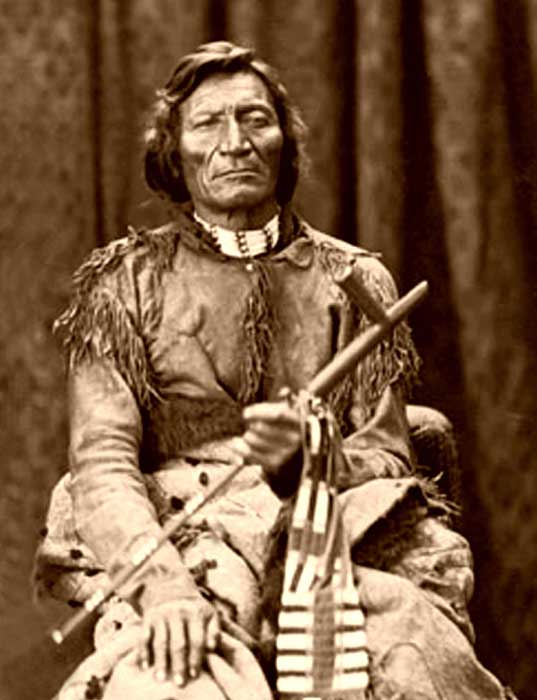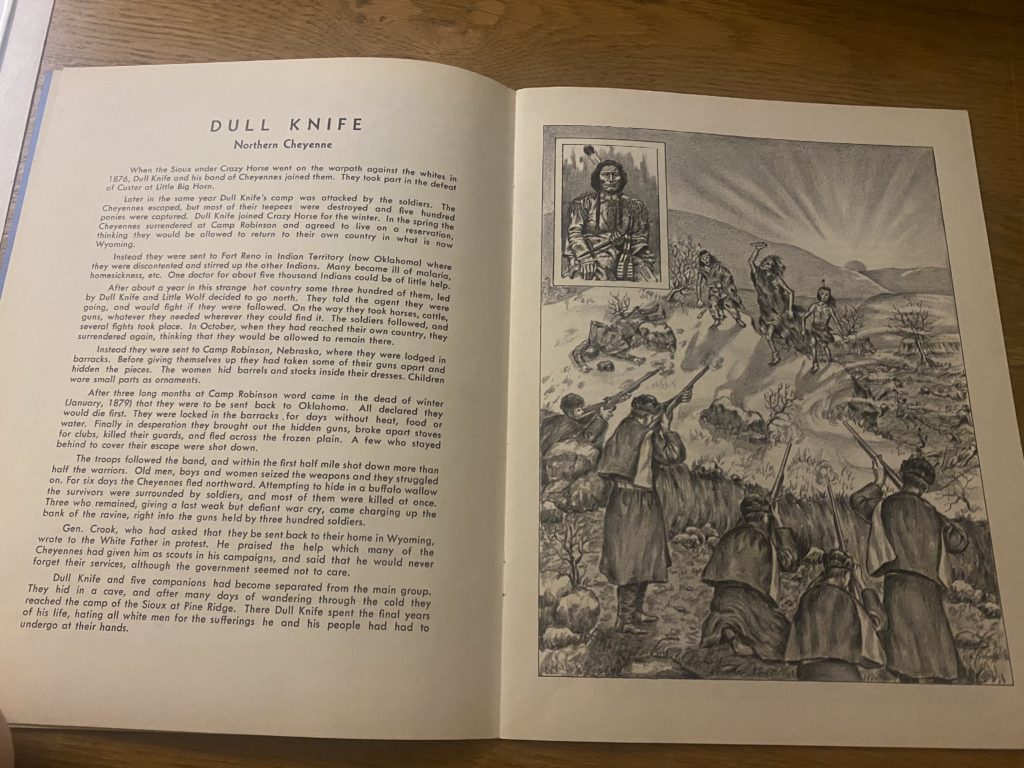What constitutes a hero? Some might be tempted to list attributes, deeds, or point to a righteous struggle in which one emerges victorious. I have come to understand that heroes are mainly subjective, and many who are heroic are not catalogued the way, or to the extent, they deserved. Many Native Americans displayed unabashed heroism when colonizers encroached on their land, families, livestock and livelihood. One of these was Dull Knife of the Northern Cheyenne Nation.
I was particularly moved by the story of Dull Knife, the Cheyenne and their hard fought struggle to remain autonomous. Dull Knife was no stranger to resistance or battle, he fought in the Cheyenne-Arapahoe War, the Sioux Wars of the Northern Plains, and fought alongside Crazy Horse and Sitting Bull during the War for the Black Hills. The Native Americans were underestimated, and after each battle they, along with their Chiefs, made their formidable posture known. As such, General George Crook coordinated a surprise attack on Dull Knife’s camp. Those who survived fled and surrendered elsewhere. Subsequently, they were forced onto a reservation in Oklahoma that touted little game, unfamiliar weather and was host to diseases.
In 1878, Dull Knife and 300 others fled, unable to bare the deplorable conditions the colonizers had provided for them. They all began a 1000 mile journey with a single step. On this journey they were forced to split up, reconfigure and eventually surrender at Ft. Robinson. A year after the death of Dull Knife, the Northern Cheyenne were granted the Tongue River Reservation in Montana.
The later years of Dull Knife’s life were marked with struggle, oppression, concealment and brutalization. He never lived to see the small consolation of a reservation, closer to their home of Wyoming, awarded to his people. Even so, he never wavered in his struggle for freedom. He never caved to the proposals of assimilation or displacement, and no matter how hard the white invaders tried, they could never scrub history of his influence or his stature. Rather, like many Native American Chiefs, his struggle casts a large shadow over society 150 years later. The shadow of his heroism, and the heroism of those like Crazy Horse and Sitting Bull, eclipse the American platitude of “liberty and justice for all”. When one takes the time to learn about those like Dull Knife, they are met with the duty to acknowledge that we are truly an imperfect nation, founded by imperialism. Barbara’s collection reminds me that the term “Founding Fathers” is a misnomer. John Adams, Thomas Jefferson, nor the others founded this land. On the contrary, it was the ancestors of those like Dull Knife and Barbara herself who are true founders.

